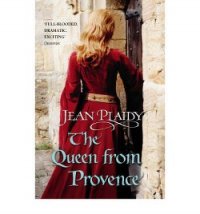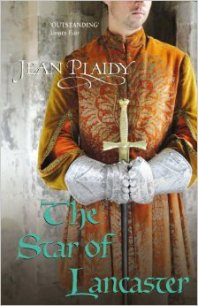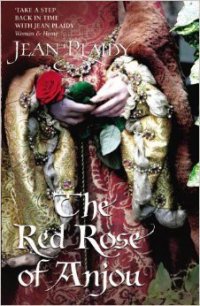The Revolt of the Eaglets - Plaidy Jean (бесплатные полные книги TXT) 📗
When the King heard that his eldest son was dead, for a few days he felt nothing but grief; but he could not for long give way to his sorrow. Henry’s death raised many problems. Most important, it meant that there must be a new heir to his dominions.
Richard!
The King’s expression hardened. If there is aught I can do to prevent that, prevent it I will, he told himself.
And yet it was dangerous to depose the rightful heir and set up another in his place. Richard had never cared much for England. Aquitaine had been his passion. That might be because it was his mother’s and he was close to her. In spite of his Norseman’s looks he loved the southern land.
My sons! thought the King. What affection have they ever given me? Henry! Richard! Geoffrey! – my enemies all of them.
There was one who had so far been his obedient son – John.
Why should he not make his heir the son who had been loyal to him? He would show traitors, be they his own sons, that he did not forget injuries.
Richard? He must confess that Richard had never been anything but straightforward. If Richard was planning to act in a certain way he did not feign otherwise. He was not like Henry had been or Geoffrey was. Those two he had never been able to trust. But he could not like Richard.
How ironical was life – and particularly a king’s life! He craved for sons and when they came they made his life a burden.
Henry had lied to him and stood by when one of his men had shot arrows at him. What had been his son’s true feeling when the arrow had merely pierced his cloak, and his horse, not himself, had been shot down?
He was a shrewd man in all but his family affections. He should have known long ago that his sons had no love for him, only for his crown.
He wished that he could love Richard. Richard was perhaps the one in whom he should have put his trust. But he was uncomfortable to be in his presence; he always feared that a subject would be referred to which would make him very uneasy, even might make him betray something which must never be told.
‘Oh Alice, my sweetheart,’ he murmured, ‘you have much to answer for.’
He longed for home … and Alice. He thought of her in Westminster or Winchester or Woodstock. Dear, beloved Alice, who never complained that he could not marry her; who was content to remain in comparative seclusion; who was content merely that he love her and keep her from Richard.
He had Alice, but he desperately wanted his sons’ affection too. He had visualised when they were in the nursery how they would grow up and work together and how happy they would be to do his bidding. He had seen them as a formidable family of strong men with himself at the head. None would have dared come against them. Four sons who would marry into Europe and bring more and more rich lands under the Plantagenet crown. How sad, how disillusioning, with his sons warring against each other and against him and making allies of the King of France!
And now Henry dead – and most ignobly had he sacked sacred shrines before dying and something must be done about that or there would be no good fortune for the family. The saints must be placated.
Henry, the most beautiful Prince in Christendom, with his charm of manner which drew men to him – dead. What a waste of a life!
My son, whom I wanted so much to love and who wanted nothing from me but my crown!
And Richard? No, not Richard! He could not have him beside him, the future King of England. How could he? And what of his marriage? It would be expected now.
I will send for John, thought the King.
John came riding in from the hunt when the news was brought to him that his father wished to join him.
John was now seventeen years old; very conscious of being the youngest son, he had been determined to exert himself. His brother Henry had been tall and handsome, so was Richard. John however took after his brother Geoffrey. They were both of small stature though their limbs were well formed. Their father, who was of little over medium height, seemed to tower above them both. Geoffrey and John were very much alike in features and also in character. Both of them could acquire knowledge without much difficulty and were more interested in book learning than either young Henry had been or Richard was. Geoffrey had always been able to express himself with lucidity and to put forward a good case when this seemed a difficult thing to do. John was like Geoffrey in this. He was bland and full of soft words when he wanted something. He was deceitful and seemed to take a delight in deceit. For the sheer joy of getting the better of someone he would go to great lengths and perhaps achieve nothing in the end but the pleasure of deceiving someone.
Gerald of Wales, the priest who had been sent to John to help further his education, realised that it was no use attempting to go against his nature. John had long been dissolute. He had been seducing women from a very early age and often rode out into the country with a band of lusty followers indulging in seduction or rape, whichever came to hand.
He was in the charge of the justiciar Ranulf Glanville, a very able man who had distinguished himself on the battlefield and won the King’s favour to such an extent that he was content to overlook his peculations which were numerous, even when they were proved against him.
That his son John should have been put in the charge of such a man was strange even though he was a justiciar of England and one of the most important men in the country.
John admired him and saw nothing wrong in his shady dealings.
At seventeen he was very much aware of being the youngest son and he never forgot the fact that when he had been born his father had called him John Lackland.
Now his brother Henry was dead and Richard was the heir with Geoffrey next and then himself. It seemed there was no hope for him with two strong brothers to stand between him and the crown; but there was this in his favour: his father was fond of him.
John was amused. Henry had perhaps been the favourite because Henry was tall and beautiful and knew how to charm people, even his father. It seemed he could shoot an arrow at him which could have killed him if it had not pierced his cloak instead and still he could talk himself out of such a situation.
John admired that in his brother, but Henry was a fool of course. He had died of a fever, and that was the end of him. Richard was always going to war so he would doubtless meet a violent end one day.
That left Geoffrey. John had a great deal in common with Geoffrey – they looked alike; their characters were similar. John was the more dissolute. He had surrounded himself with companions of similar tastes. Geoffrey was a sedate married man in comparison; he had a wife, Constance of Brittany, and a daughter Eleanor named after their mother. John, too, had inherited the Angevin temper. He was as ready to flare up as his father was and then his rage could be terrible. He was naturally not so feared as his father, but his attendants always kept well out of the way when John’s temper was about to rise. There was a sadistic streak in him, too, which Geoffrey lacked. And, although on the surface he appeared to be a pleasant young man with a charming manner, beneath that facade there were traits of character as yet unsuspected even by those who were close to him.
When he received the news that his father wished him to join him in Normandy he sent for Ranulf de Glanville to tell him the news.
‘You see what is happening, Ranulf, I am to be my father’s favourite now.’
‘Good news, my lord. Good news.’
‘The poor old man must have one son on whom to dote.’
‘And fortunate, my lord, that Richard and Geoffrey have displeased him so much that you are to be the chosen one.’




